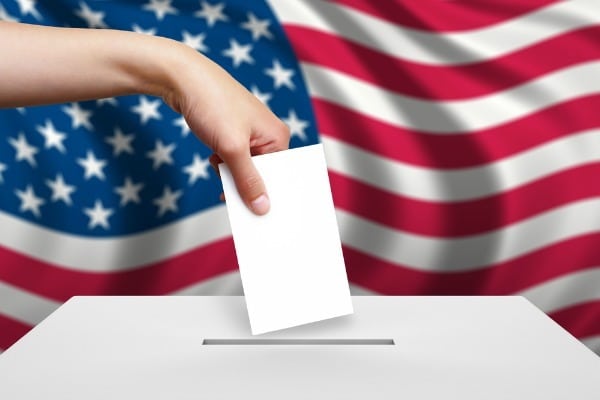
After the most chaotic year in modern American history, with 230,000+ coronavirus-related deaths and millions unemployed, President Donald Trump still has a conceivable chance of winning re-election. He commands strong support from his base and his approval ratings sit at roughly 40 percent.
What is the secret to his resilience with this group?
To get at some of the dynamics underlying the president's distant, but possible chance at a second term, it helps to view Trump through the medium he built his political career and real estate empire around. That is to say, through the lens of building a brand.
Taking a fresh look at the traditional questions of horse race polling, Ipsos applied the same market research approaches used to evaluate major brands, like Coke or Pepsi, to Trump and Joe Biden. This exercise reveals several crucial understandings necessary to interpret the last few weeks of this campaign season. It also suggests that none of us should fully discount the president's chances.
Emotion Not Policy
First, it underscores that this election is about emotion and identity, not policy positions. When we asked Americans to free associate about Trump and Joe Biden, virtually all of the responses are about their character. Almost none are about what they have done in office. When Americans think about whom to vote for, they think first about how they feel and who these candidates are, no matter the media preoccupation with policy positions.
And what they feel is illuminating. We asked Americans to evaluate Trump and Biden across more than 50 different policy areas and personal characteristics. Here, Trump’s centrality in the race becomes apparent–three-quarters of the most meaningful associations were about Trump. Biden, by contrast, is more of an afterthought.
A Delineated Brand
Beyond that, these free associations underline how strongly delineated Trump’s brand is. Trump’s core supporters see him as strong, bold, expansive and actively “preserving the American dream.” On the other side of the equation, his detractors almost universally see him as a liar, arrogant, a bully, reckless, corrupt, racist and narrow-minded.
The two camps could hardly be more diametrically opposed. Americans either love Trump or hate him with very few in the middle. The election will come down to which response to Trump, the push or the pull, is stronger for more people.
In contrast, views of Biden are more moderate with neither the intense love nor the fiery hate. Americans who like Biden see him as qualified, likable and trustworthy; his negatives are that he is seen as old, boring and irresponsible. On all counts, the reaction to Biden–either for or against–is much more muted.
Good Positioning
Against the chaos of 2020, Biden’s position as a more neutral alternative to Trump is not such a bad place to be. He has yet to do anything so controversial that would turn off Independents or otherwise-undecided voters looking for an alternative to Trump.
But it also means that he is banking on continued anger at Trump to garner a large enough coalition to win the White House. In a further indication of the challenges Biden is up against, 52 percent of Democrats still name President Obama as their favorite politician, suggesting that nostalgia for the past has more pull than the promise of the future for some voters.
'It's All About that Base'
For now, all signs suggest that Trump is doubling down on a strategy of appealing solely to his base and ignoring other potential supporters. This is to Biden’s advantage–but also opens up risks. Biden’s position is reliant on Trump continuing to fan the flames of those opposed to him. Even in the absence of Trump abruptly shifting gears, anything that acts to lessen the anger of Biden supporters could damage his ability to turn out a majority of voters. This is in contrast to Trump’s base, which will be (and has been) resistant to efforts to shift from the president.
Taken together, these findings suggest that the 2020 election could still hold surprises.
Trump retains considerable power due to the central position his brand holds in the minds of voters. Even if many Americans find that brand alienating, Biden is operating in its shadow, which is rarely good for a brand. Given how close the race could be in the battleground states, Trump’s appeal to his core supporters could prove to be enough to outweigh the strong antipathy other Americans feel for him.
Chris Murphy is president & global lead of market and brand strategy at Ipsos. Chris Jackson is SVP and lead of Ipsos’s public polling practice in the US.
